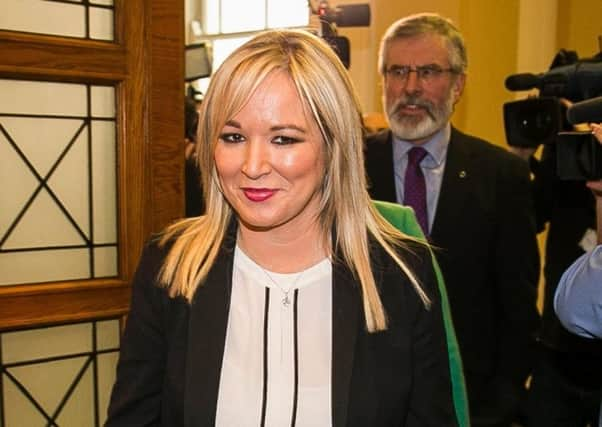Michelle O'Neill publishes six-point plan to reduce waiting lists


The Minister’s six-point ‘Elective Care Plan’ aims to ensure no one is forced to wait more than a year for a first outpatient appointment by March next year.
Publishing the Plan follows through on the commitment in ‘Health and Wellbeing 2026: Delivering Together’ which was launched in October.
Advertisement
Hide AdAdvertisement
Hide AdHealth Minister Michelle O’Neill said: “Today’s publication of this plan honours the commitments made in ‘Health and Wellbeing 2026: Delivering Together’.
“There is no point continually doing more of the same in delivering elective care to outpatients. Frontline staff in the HSC are working harder than ever, but we are still not meeting the demand for services. We need to do it better, smarter, and in a way that will be sustainable.
“This Elective Care Plan is one of the first products to come out of ‘Delivering Together’ but it is not a stand-alone initiative, nor is it a plan set in stone. Its strategic commitments and actions must be seen within the broader context of my transformation programme and be taken forward alongside all of the other priorities identified if sustainable improvement is to be realised.
“It is a high level plan and the detailed work to develop and implement the actions in it will be taken forward by the clinically led, managerially supported HSC workstreams established under my Department’s Transformation Implementation Group.”
The Plan has six commitments that will:
Advertisement
Hide AdAdvertisement
Hide Ad* Address waiting times - the Department’s clear aim is that, by March 2018, no-one should wait more than: 52 weeks for a first outpatient appointment and inpatient/day case treatment; and, 26 weeks for a diagnostics appointment.
* Increase patient self-management services - to enable patients with long term conditions to manage their condition more effectively.
* Expand capacity and capability in primary care - so patients can be appropriately managed locally, outside the secondary care setting.
* Improve direct access between primary and secondary care – to enable more rapid access for patients to secondary care services.
Advertisement
Hide AdAdvertisement
Hide Ad* Reform and modernise secondary care services - to meet patient demand to ensure that patients are seen at the right time, in the right place and by the right person.
* Establish new models of provision such as regional Elective Care and Treatment Centres - to deliver large volumes of assessments and non-complex routine surgery across a broad range of specialties.
The first stage requires a total of £31.2million, new non-recurrent revenue investment in 2017/18 to fund additional activity to clear, by March 2018, the backlog of patients waiting more than 52 weeks for a first outpatient appointment and inpatient/daycase at March 2017. In addition the backlog of patients waiting more than 26 weeks at March 2017 for diagnostics will also be cleared by March 2018.
The Minister continued: “As I have said before, new investment is also required to take forward the initial work on the other commitments in the Plan to transform the delivery of elective care services.
Advertisement
Hide AdAdvertisement
Hide Ad“We must invest in our HSC services if we want to deliver better outcomes for our population. The previous Executive endorsed this approach, and all the other parties agreed to take politics out of Health. Any incoming Executive needs to continue the transformation plan, including tackling waiting lists.
“This plan requires a significant uplift to the Department’s overall budget settlement for 2017/18. This has not yet been approved but given the cross party support for the Bengoa Report, not just in the Executive but in the Assembly, I am confident this uplift will be forthcoming. I have already had detailed discussions with the Finance Minister in relation to this requirement.”